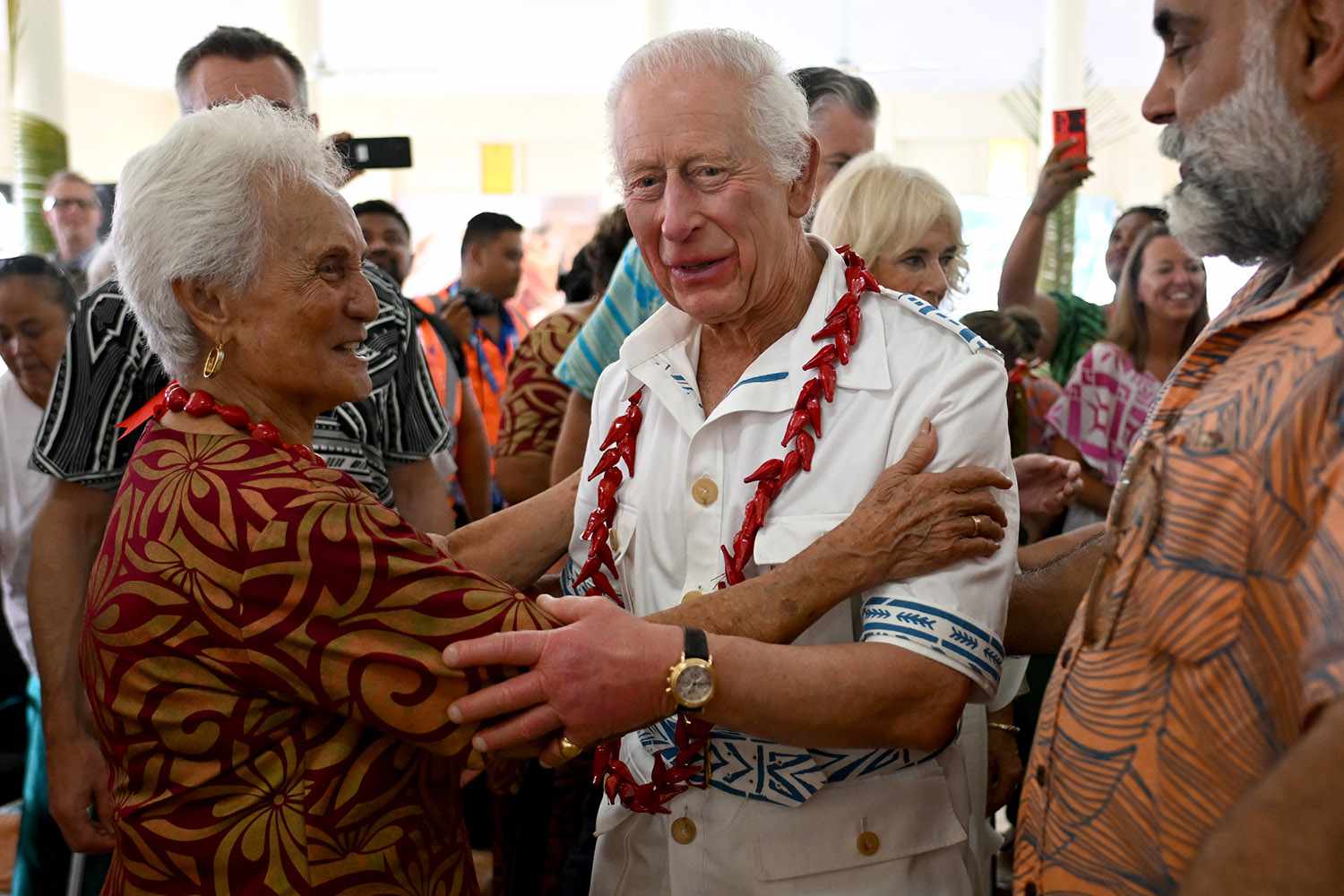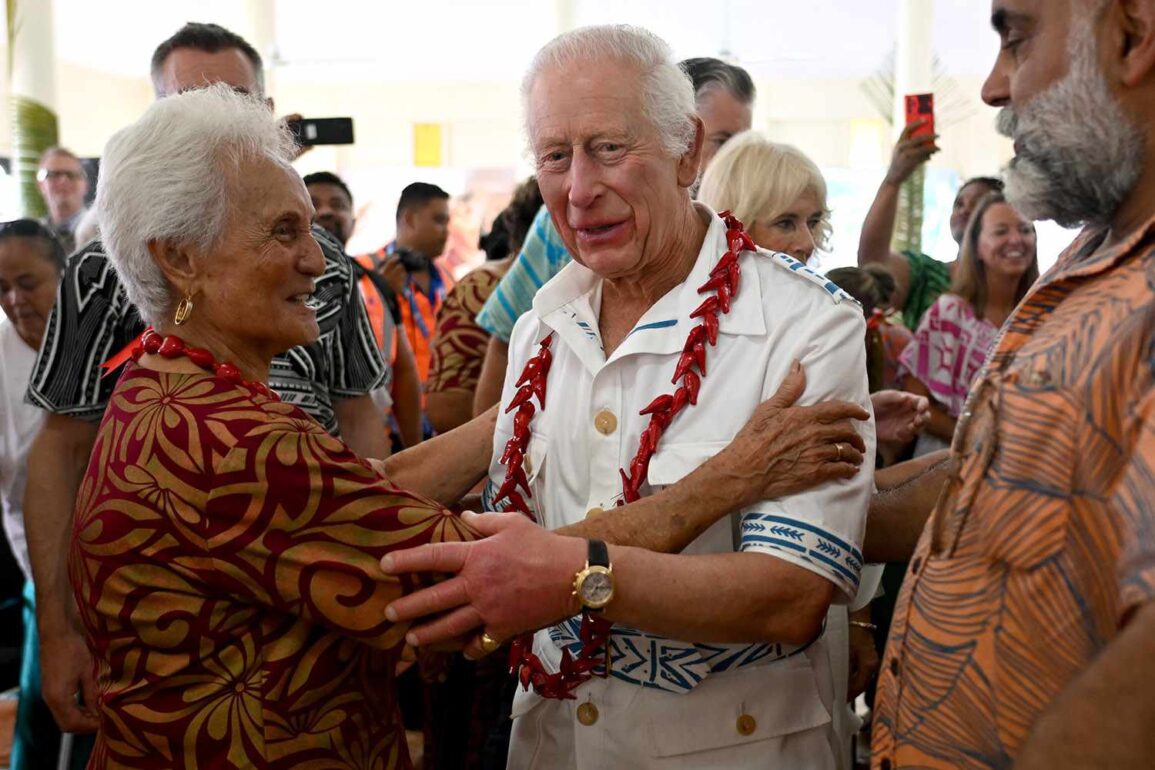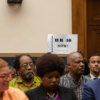
An advocate for slavery reparations has cautiously welcomed King Charles’ comments on Britain’s painful past.
Laura Trevelyan, a former BBC journalist who left her role to join the Caribbean’s fight for reparatory justice after discovering her ancestors’ involvement in the slave trade, praised the tone of the King’s speech in Samoa on Friday, Oct. 25.
Addressing the Commonwealth Heads of Government — a group of 56 nations, including many Caribbean countries historically tied to the U.K. — Charles acknowledged the “painful aspects of our past.” His comments come amid calls for the Commonwealth conference to discuss reparatory justice for the Atlantic slave trade.
“It is vital, therefore, that we understand our history — to guide us to make the right choices in the future,” Charles added.
Trevelyan, who held a senior role at the BBC in the U.S., exclusively tells PEOPLE, “I thought the King’s tone was so much better than [the U.K. government’s]. He acknowledged the pain many in the Caribbean, and indeed Africa, feel about the transatlantic slave trade to this day.”
“He acknowledged both the pain of the past and looked forward,” she adds. “That, to me, was the contrast so far with the Prime Minister, who has resolutely said, ‘Let’s look forward and not look back.’”
Ian Vogler-Pool/Getty
While Charles acknowledged Britain’s “painful” past, he stopped short of issuing an apology for the country’s role in the slave trade. Regardless of his personal views, the King is constrained by his position as a constitutional monarch and must not contradict the U.K. government on political issues. “Presumably, given the sensitivities, he would have had to vet what he said,” adds the advocate, who founded the Trevelyan Grenada Reparations Fund.
Trevelyan says she believes the King “is stuck in a bit of a holding pattern.” Like the U.K. government, he is not following the example of the Dutch king, who recently issued an apology. In 2023 speech, King Willem-Alexander of the Netherlands asked forgiveness for the “clear failure to act in the face of this crime against humanity.”
Trevelyan says, “As head of the Church of England and the Commonwealth, an apology from [King Charles] would be extremely meaningful. You can see from the tenor of the remarks of the government that they won’t allow him to.”
She adds, “There is a lot of healing power to be had by acknowledging this.”
Bill Wadman
Trevelyan has embarked on her own journey into the past. In February 2023, she and seven family members, including her father George, traveled to the Caribbean for a ceremony where they publicly signed a letter of apology. After discovering that her family once owned 1,000 slaves in Grenada, she donated $127,000 from her pension savings to the government to help fund education initiatives in the nation.
She emphasized Charles’s remarks about “finding ways to right inequalities.” Speaking from Grenada, where she is engaged in charitable work, she tells PEOPLE, “That is the trick – to both acknowledge the pain of the past it and recognize it in a way that Caribbean leaders are calling for and find a way to address inequalities.”
Reynaldo Bernard
She believes the U.K. government could contribute by funding programs to tackle the challenges the islands face due to climate change. Grenada and its neighbors were devastated by Hurricane Beryl in July.
“These islands are trying to build back better, but that’s very hard to do with 150 mph winds and sea levels higher than ever, without the money to do it,” she explains.
“Britain has a responsibility because the ancestors of the people here were brought here by British slave traders or plantation owners like my own, and now people are facing the consequences of climate change fueled by the Industrial Revolution—and Britain was a major polluter,” Trevelyan says.
She adds, “There is a distinction between reparations and reparatory justice—which is softer and broader than reparations—and begins with a conversation about the past and acknowledging the horrors of the past. That shouldn’t threaten anybody and doesn’t imply countries paying trillions of dollars.”
Chris Jackson/Getty
The Caribbean “is a group of countries where the links to Britain are still meaningful, and it’s an opportunity for Britain to lead. It would be good if someone seized the opportunity,” she continues.
Can’t get enough of PEOPLE’s Royals coverage? Sign up for our free Royals newsletter to get the latest updates on Kate Middleton, Meghan Markle and more!
The King has supported an investigation into the royal family’s connections to slavery. During a visit to the Bahamas in 2021, he expressed his anguish over the crimes of the past, describing the “appalling atrocity of slavery, which forever stains our history.”
In Kigali, Rwanda, in 2022, Charles furthered his commitment to the issue by stating in a speech, “I cannot describe the depths of my personal sorrow at the suffering of so many, as I continue to deepen my own understanding of slavery’s enduring impact. Many of those wrongs belong to an earlier age with different – and, in some ways lesser – values. By working together, we are building a new and enduring friendship.”



